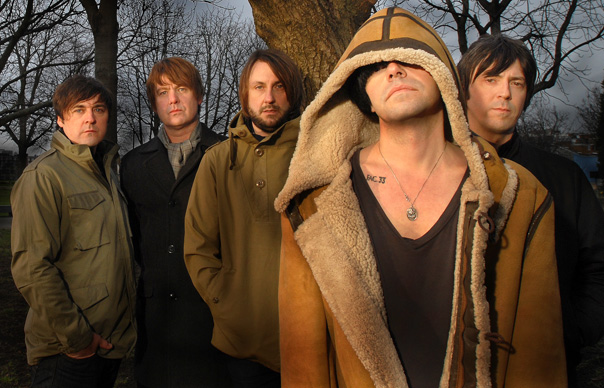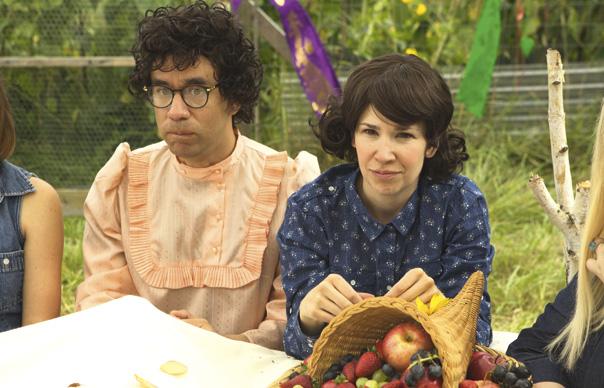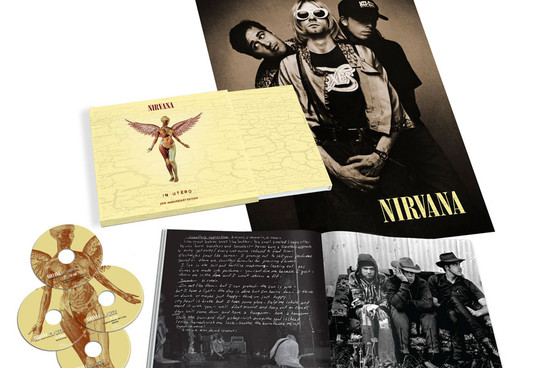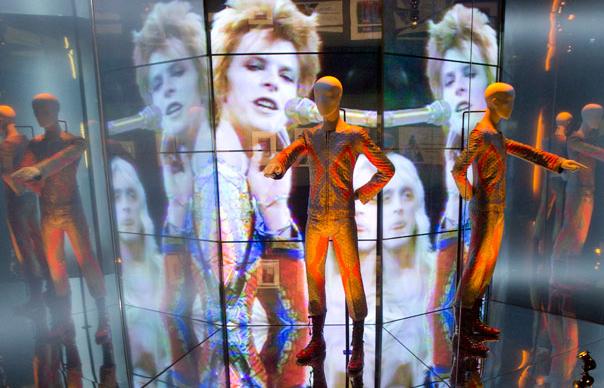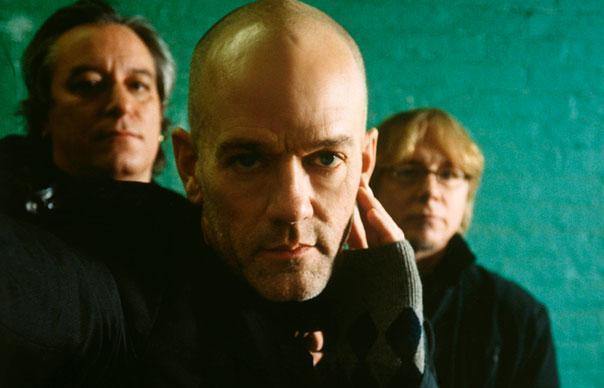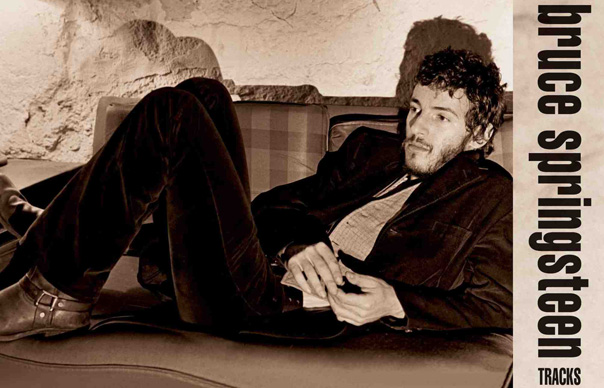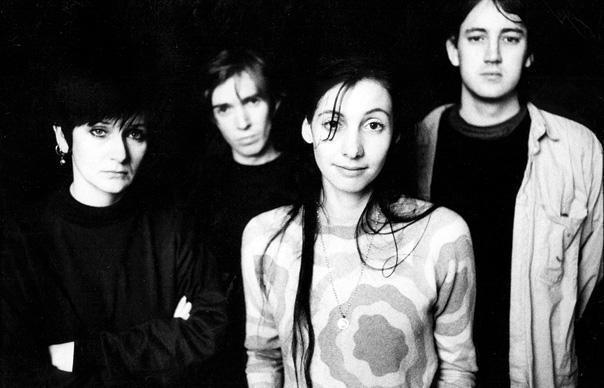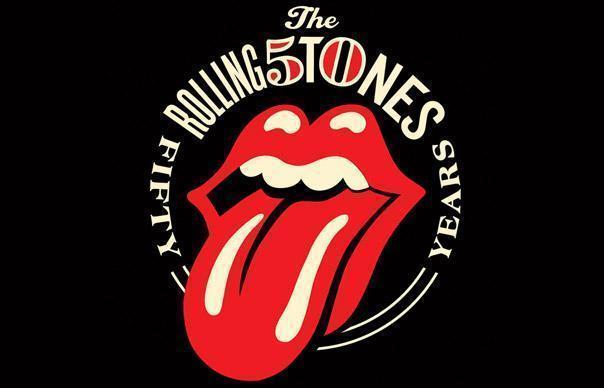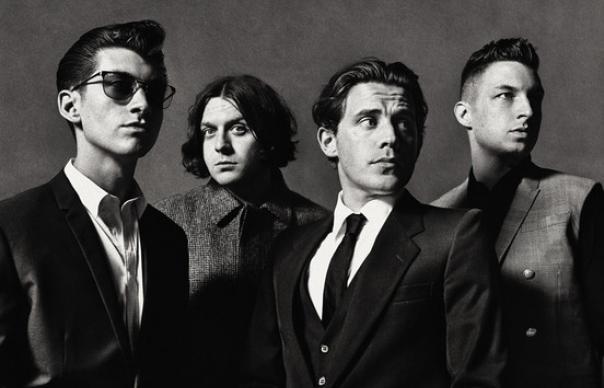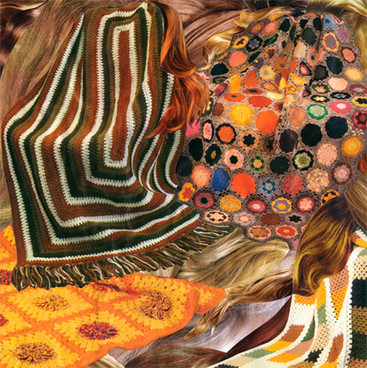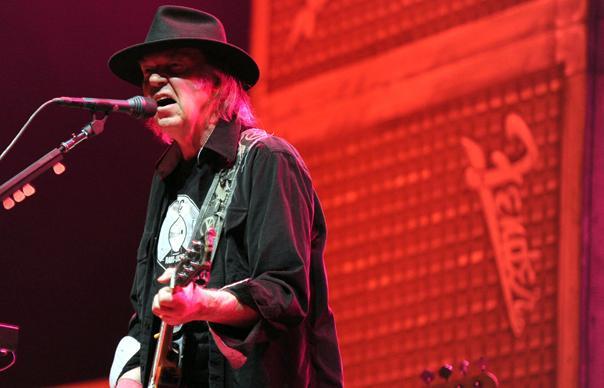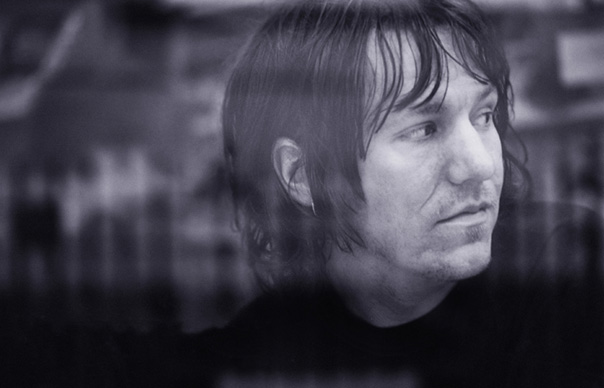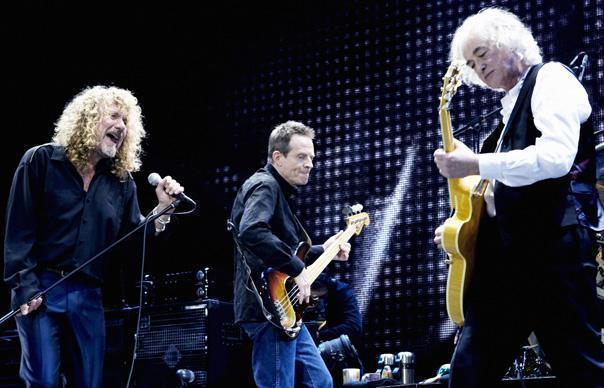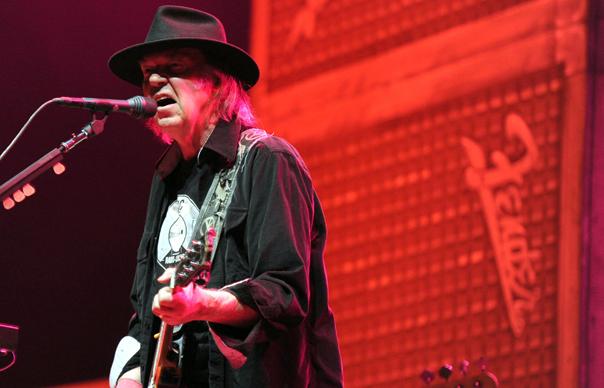Reading a magazine this morning, I noticed that there are a bunch of tribute shows to Elliott Smith coming up; ostensibly I guess to commemorate the fact that, horrifyingly, the tenth anniversary of his death is coming up in a couple of months.
This week, Smith would have turned 44. I first met him in the late ‘90s in London, when he was just releasing “Either/Or” in the UK. The piece below, though, is from spring 2000, when I spent some time with him in Austin at South By Southwest. After that, there’s a long essay/review I wrote around the time of “From A Basement On The Hill”. Hopefully they remain of some interest. Both were originally published in NME.
Follow me on Twitter: www.twitter.com/JohnRMulvey
The word is out there’s a man on the line. Where the railroad leaves Austin, Texas, where weeds and rust mingle between the track and semi-derelict warehouses, that’s where you’ll find Elliott Smith today. Taking the sun, having his picture taken, an ordinary guy dealing with the attention his extraordinary songs bring him.
He’s just like somebody that you used to know – though perhaps a little more distant. His life, for the most part, hasn’t been a smooth, ever-ascending arc of achievement, nothing so clearly defined. It’s vague, confused, erratic, mixed-up – but then again, what’s so unusual about that?
The moment the sirens start, it’s not immediately obvious they’re for him. Some trouble on the freeway, maybe, or a test on the systems over at the power plant. It becomes clear when a truck, lights strobing, comes barrelling round the corner, along the track towards him. When it stops and the hard-hatted, harder-headed maintenance man stalks out and says, “Your life is more important to me, than that photo.”
You don’t mess in Texas, for sure. There are many ways it’s been assumed Elliott Smith – stereotyped so often as a noble tragic figure – would die. To go out in a flash and a smash while being shot for the music press, however, hardly fits the legend. Especially since he’s not much interested in having any pictures taken, let alone ones that put his life in jeopardy. For now, there’ll be no blood on the tracks.
He’s a more contented figure nowadays, but Smith’s disgust at doing what’s expected of him – to indulge the mythologies and play the lonesome outsider role to the hilt – still remains. His life can’t be reduced to a series of bullet points and easily assimilable cliches. The idea of being understood is anathema to him: if he can’t work it all out, why should anyone else?
Nevertheless, you’ve got to try. At 30, he is about to release his fifth solo album, Figure 8 – and his eighth record in all, counting the three he made as leader of Heatmiser. Like its predecessors, notably XO and Either/Or, it’s tremendous: the work of a man capable of investing new spirit into old ways of songwriting without ever appearing to be some dim plagiarist.
The closest British equivalent is Mick Head, and The Magical World Of The Strands album in particular. There’s the same infectious belief in the power of a great song, and a fundamental understanding that sadness and trauma are part of a bigger picture. Nothing, ever, is black and white. But while Head shines bright light on the specifics and fills his songs with names, addresses and brutal candour, Smith is altogether more allusive. He may gather images with snapshot accuracy, nail characters who pass by his seat at the bar swiftly and vividly. But this is a mere supporting cast to the complex ebb and flow of emotions at the heart of his songs. Always, there’s that profound horror of simplification. Love and life, he repeatedly infers, are messy and volatile: “Happy and sad come in quick succession”, as he points out on XO’s “Bled White”.
It’s a brilliant knack of articulating vagueness and it isn’t, predictably, limited to his songs. Back at his hotel – he’s at Austin’s South By Southwest music festival to debut his excellent new backing band – he’s peerless at countering demands for solid fact with loose, abstract theories.
“It’s less about me and more about what might be interesting about my situation,” he explains.”If we were really going to talk about my specific life then i couldn’t do that. The songs are like little movies that you can watch if you want, they’re not supposed to make people feel like I do.”
There are never any easy answers. Elliott Smith is full of the contradictions that other people in his situation hide to make their lives appear more straightforward. For instance, when he went touring a year or so ago, he gave up the place where he was living in Brooklyn. At the end of his work, he crashed at friends’ houses before deciding to move full-time to Los Angeles, where he recorded Figure 8. For a man who has continually railed against the winners, the flash and the shallow, “the cult of the victor”, it must’ve seemed like entering the belly of the beast.
“It’s the last place I thought I’d ever live,” he says, swivelling the stem of a glass between his fingers, “but that was part of the attraction. I like to move, and I like being close to the thing I don’t like. It’s good to have something that makes you a little mad and keeps you thinking about something other than yourself. that keeps you focused outwards.”
For the past few months, he’s listened to virtually nothing except The Marble Index by Nico, and album that puts the alleged miserabilism of his own music into gruesome perspective and which he describes, plausibly, as the “perfect antidote” to LA. Figure 8, nevertheless, is a significantly brighter album, richly arranged and even, in places, imbued with the sense that the clouds are gradually lifting. These are less angry, more accepting songs that, more than ever, assert his self-sufficiency. Shit goes on around him, but he doesn’t have to be a part of it.
“That was what the title was supposed to suggest – a self-contained pursuit that potentially could be kind of beautiful and has no destination. Like when figure skaters are skating a figure eight and they’re trying to make it just right. as soon as they stop they’re gonna fuck it up, cos they can’t get out of it without ruining it. i kinda like that.”
Smith’s the type of person who melts in and out of conversations. His mind wanders from time to time but, as he’s keen to point out, “That happens to everybody, but it’s not usually appropriate to say that it’s happening. If there weren’t little drifts like that no-one would think of anything to say.” If there’s “a good, happy side to isolation”, he’s OK with being isolated. A loner, you could say.
“Well, no. I wouldn’t be surprised if somebody called me that, but it’s not a word I would choose to describe myself. It has a darker connotation. A loner in a lot of people’s minds is someone who’s alone because they can’t interact, not that they maybe choose not to. I don’t know why that freaks people out. I mean, why do they care? Why go out of your way to give someone shit for not interacting with you?
“Sometimes it seems that the simple fact that I’ve played acoustic music equals that I’m some sort of hermit, a very depressed hermit who can’t do anything but sit on the edge of his bed and look at his shoes writing song. and it’s not like that at all. I dunno, it’s a strange thing. I can talk to people, but sometimes I don’t want to.”
The opening song on Figure 8, named “Son Of Sam after the New York serial killer, is about that distance from normal people. “It really has little to do with that actual historical figure,” says Smith, “other than as an image of a destructive, repetitive person.” At one point, in what seems to be the pivot of the whole album, he sings, defiantly, “I’m not uncomfortable feeling weird.”
“Why beat your head against a wall?” he continues. “I got tired of doing battle with people thinking I was a little weird because I wasn’t in a band making happy, stilted music. The only people who really seem weird to me are people who think they’re normal. People who think it’s possible to be normal just by doing the same things that most people do. Is there a most people? I don’t know. Television makes it seem like there is, but I think that might just be television,” he grins wryly.
You’re very dismissive of generalisations, the simplistic way ideas are usually presented.
“There’s a certain language people use when they’re talking about music, to make it more marketable, by narrowing down what it is until it has one name and price tag. That’s sort of necessary, I guess, if you’re trying to sell things to people who don’t know what they are. It’s got to have a name like a car or a suit. You can’t say, well, it’s sort of like this and it’s sort of like that and you should try it, because no-one will buy it. It has to have a name, so people go to great lengths to sell themselves into a tiny little situation. Sometimes it’s cool when people get locked into a style, but I can’t stand it.”
One story about Elliott Smith’s perceived weirdness is that he was committed to a hospital in Arizona around the time of Either/Or. At its mention, he becomes cagier than ever.
“That episode is long passed. I guess it was two, two-and-a-half years ago now, maybe. It was a psychiatric hospital. Let’s just say I didn’t want to go there. If you took TV culture and then focused it through a magnifying glass onto a blade of grass and burned it up – that’s what it was like in there, this concentrated version of the same kind of pressure that people feel all the time. Y’know, ‘Get ahead! Get ahead! Be like everybody else!’ It’s ridiculous. It made things worse. A lot of that seemed to be based on fear: maybe if we scare these people enough they’ll act like they don’t feel like they do.”
So it didn’t work for you?
“It didn’t work for me, no, but I was only there for a week, or less.”
How’d you get out?
“Oh, somebody had to threaten to sue them.”
Why did they put you in there?
“I don’t want to perpetuate the myth. It doesn’t have anything to do with the music… Well, it does. There’s some stuff about doctors and infirmaries and stuff on the new record and it does have something to do with that, but I don’t want to perpetuate the notion that if somebody plays music they must be fucked up or crazy. mostly I don’t like that whole myth because if you’re a kid and all you can ever hear is that people who are in your favourite band are really weird and unlike everybody else, it seems like you have to be unusual to make good music.
“Y’know, on the one hand there’s the cult of the winner, on the other hand there’s the cult of the artist. It makes it seem like people who do some artistic thing are different from everybody else. That’s why there’s so many people walking around saying, ‘I can’t draw.’ Well of course you could.”
The tortured artist is a very saleable commodity for a record label, though, so to have this glamorous troubled past…
“I don’t think it’s glamorous in the least. It winds up being another part of your cartoon costume, because then it’s supposed to stand in for actual life – not that it matters what my actual life is. I don’t have any desire to try and put across my life to people.”
Have you changed since then?
“Oh yeah, everybody changes over the course of a couple of years. There are certain things that I didn’t think would bother me but did, and now they don’t any more. Like lining up in situations that were more set up for someone who lives and breathes a the role of a star and always looks like one and always acts like one and projects this image at all times and expends mass energy doing all those things. And I just can’t do that. And I don’t even want to. It’s a lot more important to be thinking about a new song than to be thinking about what I’m wearing, y’know?”
Today’s choice from the wardrobe of the anti-stars – and indeed at last night’s gig – is an incredibly tattered Steve Martin shirt chosen, quite possibly, to take the piss out of his image. On the back it reads, ‘a wild and crazy guy’. It isn’t quite proof, but there’s a new song called “Everything Means Nothing To Me”, all cascading piano and disorientating strings, that Smith wrote in LA during a two-day mushrooms bender. Hours all over the place, at some point he sat down at the piano and thought, “Wow, look at all these keys! There’s so many of them! I’ve made some things up in different states, but that was a pretty new thing for me.”
Do you ever go back to a song and wonder what the fuck you were doing?
“that song ‘Cupid’s Trick’, it’s from Either/Or, that one I had virtually no idea what I was going on about after.”
What was that written on?
“Ohhh, I’d rather not say.”
Whenever it gets too personal, he flashes a coy smile and purses his lips. Speak no evil. Don’t name names. Very cautious
“I feel quite the opposite, actually. See, that’s the other problem I have with all this stuff about being depressed. If I’m so fragile, then what am I doing putting records out and going on tour for nine months of the year? I don’t really feel very cautious at all. Maybe I’m cautious when it comes to tangling my life up with someone else’s, at this point.”
There’s a tentative line on “In The Lost And Found (Honky Bach)” where you sing, “I’m in love, love I hope.” Has it ever happened to you?
“Uh-huh.”
How many times?
“Once.”
When was that?
“Mmm, about maybe four or five years ago. I still have little flashes of it.”
Did that end?
“Sort of. But it’s unclear.”
More enigmatic than ever.
“I mean, that’s not to say that was the only time I’ve felt like that. But yeah – very intensely for a certain time, but I think it’ll return.”
See, you’re not meant to say optimistic things like that.
“I know.” Shy laugh. “I can’t do the same thing forever and, if anything, the fact that people start describing you in one way makes you want to be another way. You get sick of it.”
You go looking for evidence, for what you hope is the truth. And sometimes, amid the swerves and obfuscations, you find it a little. It may be treachery to be so reductive, but Elliott Smith seems – by the planet’s standards, as well as his own – to be a relatively contented, passably well-adjusted, normally confused human being. For now. On the fabulous, Dylan-tinged “Happiness”, he sings, again and again, “What I used to be will pass away and then you’ll see/That all I want now is happiness for you and me”. There is not even a trace element of irony.
“It’s a better place. There’s no weird pressure on me to be some kind of…” he searches for the words, “rock star. It seems that I can just do my thing and not worry about it. I dunno: I’ll probably feel different in a little while. Maybe it’s just this hour, this day, and the fact that we stood out in the sun for a couple of hours that really improved my mood.”
Yesterday you preferred dull weather because it reminded you of Portland (where he lived for many years).
“Well I do. But then at other times it’s nice when it’s sunny.”
You’re so inconsistent. Come on, check your script.
“Everybody is,” he almost shouts. “Everybody pretends like they’re more coherent so that other people can pretend that they understand them better. That’s what you have to do. If everybody really acted like how they felt all the time, it would be total madness.”
That’ll be the outlook, then: changeable but, don’t forget, with bright spells.
#
In March 2003, Elliott Smith gave what would turn out to be his last interview, to a small American magazine called Under The Radar. He hadn’t released a record for three years (since 2000’s ‘Figure 8’) and, in that time, dark tales about his condition had proliferated. Smith’s long-term battles with heroin addiction and alcoholism, and the severe depressive episodes which had led to him being incarcerated in a mental hospital, were reasonably well-known. Recently, though, he had struggled to even get through a gig without disintegrating.
In early 2003, NME witnessed a show in LA that amounted to an excruciating “hour of false starts and rambling”. “The whole spectacle’s so messy that you want to offer empathy,” the writer concluded, “but all you can do is watch. Uncomfortably.”
Under The Radar’s journalist repeated worse rumours, chiefly that Smith had been found out cold in an LA toilet, a needle hanging from his arm. But when the magazine visited the singer-songwriter at his home studio in the city, they were confronted by an unusually bright Smith. He had successfully passed through rehab, and was now grappling with a vast number of songs planned for his sixth solo album. Smith’s relationship with his label, Dreamworks, had become strained since the commercial failure of ‘Figure 8’, and they had come to an agreement that his next album, tentatively named ‘From A Basement On The Hill’, could be released on an indie label.
Consequently, Smith turned his back on the elaborate, Beatles-style chamber pop that had made ‘Figure 8’ and its predecessor, ‘XO’, such grand affairs. ‘From A Basement…’ promised at least a partial return to the raw style with which he had made his name on 1997’s ‘Either/Or’. Here, we would be reminded, was a singer-songwriter of ineffable delicacy and, even by the solipsistic extremes of the genre, unnerving emotional force. Smith could be tender and misanthropic, romantic and self-loathing, candid about his drug use and densely, poetically allusive. When these confessions were accompanied by such simple, beautiful tunes, their impact was incalculable: not least on other songwriters, from Badly Drawn Boy to Sufjan Stevens, who faithfully copied Smith’s tone, if not his morbid preoccupations.
Smith’s plans for ‘From A Basement…’ were more complex and ambitious, though. It was to be a double album where, he claimed, “the songs get weirder as they go along, and then, when you get near the end, you get to the really weird ones. They’re kind of more noisy with the pitch all distorted.”
Smith never quite finished the record. On October 21, 2003, his girlfriend Jennifer Chiba found him dead in their bathroom, stabbed through the heart. In spite of much grisly speculation about the tragedy, what had happened seemed clear enough: Smith may have been clean of drugs, but his depression was not so easily abandoned. He had done what he’d threatened for so long, and committed suicide.
Now, almost a year to the day since his death, ‘From A Basement On The Hill’ finally arrives. Overseen by his parents and pieced together by Rob Schnapf (who co-produced many of Smith’s earlier albums) and Joanna Bolme (an ex-girlfriend of the singer, currently employed as Steve Malkmus’ bassist), it’s not quite what Smith had envisaged. With 15 songs on one CD, the album is about half the length he’d planned, and never descends into noise, as originally conceived.
It does, though, begin with noise – a distant roar of ambient feedback that gradually solidifies into the clanging first track, ‘Coast To Coast’. With The Flaming Lips’ Steven Drozd (another recovering heroin user) one of two drummers on the song, the sound is undoubtedly more smudged and ragged than on Smith’s previous solo albums – it recalls, if anything, his early work fronting Heatmiser. But Smith’s uncanny ear for melody, for finding prettiness even when he’s writhing in despair, is still all too obvious. It’s a great start, and one which sets out the themes which run through the whole album: chronic self-doubt, poisonous sarcasm, a prevailing sense of having had enough of trying to fulfil other people’s expectations. “I’ve got no new act to amuse you… Anything that I could do/Will never be good enough for you” he sings, and even though his voice is as high and lulling as ever, the contempt is palpable.
For, while this is clearly not the record Smith intended to make, it’s still an immensely gripping and cohesive piece of work. For all his experiments with grungier rock and spectral acoustics, ‘From A Basement…’ holds together convincingly. It sounds like a completely finished album, and one which, remarkably, is a match for the very best in Smith’s catalogue.
The songs that stand out, perhaps inevitably, are the most unadorned, largely acoustic ones, where the brilliance of Smith’s craft is most apparent. On ‘A Fond Farewell’ and ‘Let’s Get Lost’ (the latter named after a song popularised by one of Smith’s heroes, the heroin-ravaged jazz singer and trumpeter Chet Baker), it’s clear that Smith deserves to be treated as the equal to such venerated melancholics as Nick Drake and Big Star’s Alex Chilton. In ‘A Fond Farewell’ he characterises himself, poignantly, as “A little less than a human being/A little less than a happy high/A little less than a suicide”.
‘From A Basement…’ is full of such terrible intimations, it will inevitably be read by some as an extended suicide note. “Give me one good reason not to do it”, he threatens desperately in ‘King’s Crossing’, a churning fantasia that betrays Smith’s love of George Harrison’s ‘All Things Must Pass’. At the song’s death, though, he’s pleading for redemption: “Don’t let me get carried away/Don’t let me be carried away”. Drug allusions abound, from the titles of ‘Strung Out Again’ and ‘Shooting Star’, to the waiting-for-the-man hymnal of ‘A Passing Feeling’.
Of course, it would’ve been easy to read the lyrics of every Smith album as a suicide note. Even on his 1994 solo debut, ‘Roman Candle’, the template is set: “I wanted her to tell me that she would never wake me” he repeats again and again on ‘Last Call’. And since some of the material on ‘From A Basement…’ dates from as early as 2000, it may be rash to draw a direct connection between the lyrical sentiments and Smith’s awful fate. The lovely chronicle of doubt and surrender that is ‘Pretty (Ugly Before)’ , for instance, was a staple of Smith’s live set from around the time of ‘Figure 8’, long before its release as a seven-inch single in August 2003 on the ghoulishly-named Suicide Squeeze label. Better, then, to see this as the last work of a permanently troubled, inordinately gifted songwriter – although, tantalisingly, there may well be another dozen or so finished songs still awaiting release.
Elliott Smith despised his reputation as a depressive icon, hated the fact that people were attracted to his music because of the grim assumptions they made about his life. “I don’t want to perpetuate the notion that if somebody plays music they must be fucked up or crazy,” he told NME in 2000. But the news that veteran director and scandal-monger Kenneth Anger is planning a movie about Smith’s death suggests that seedy myth currently has more cachet than musical genius.
In this context, ‘From A Basement On The Hill’ is a magnificent album, but it’s simultaneously a terrible kind of failure: a last testament which cements Smith’s reputation as a tormented, terminally unhappy figure, and which rarely shows the kindness and humour that was so fundamental to his personality away from the microphone. Death has ensured that, for all the praise his music will undoubtedly receive in the years to come, it is Smith’s unfortunate destiny to be saddled forever with a stereotype he abhorred: as a doomed, tragic hero.


